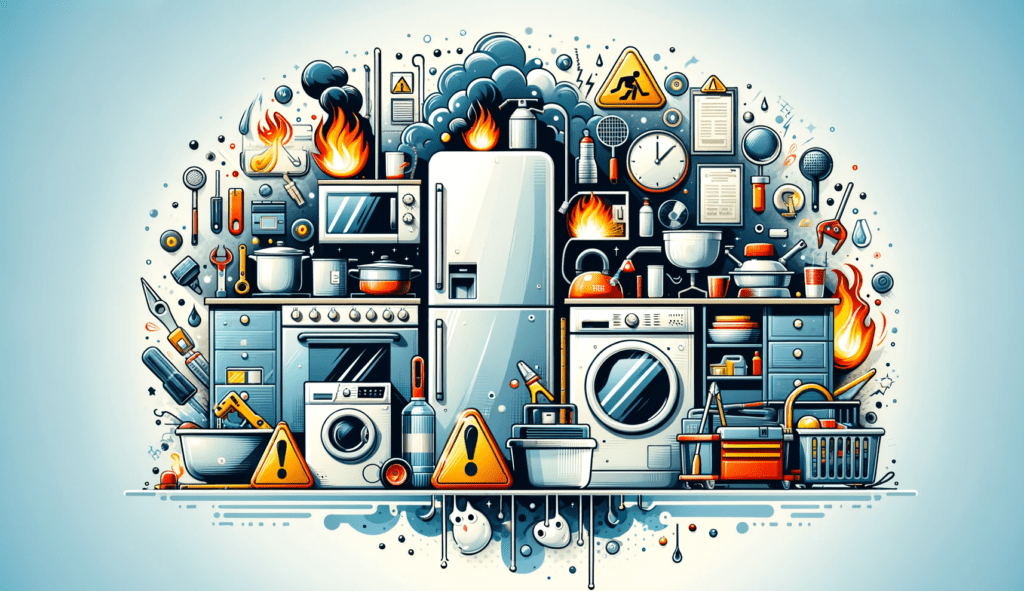Imagine a typical day at home suddenly disrupted by an appliance failure – your refrigerator stops cooling, or your oven starts emitting smoke. Such emergencies not only cause inconvenience but can also pose significant risks. Understanding how to handle these situations effectively is essential for every homeowner.

Identifying an Appliance Emergency
Recognizing the Signs
Initially, it’s vital to discern what classifies as an appliance emergency. A situation necessitating immediate attention is one where there’s a potential safety hazard, such as a suspected gas leak or electrical short circuit.
Understanding the Severity
Moreover, discerning the severity of the malfunction is crucial. For instance, a leaking washing machine might require prompt action to prevent water damage, while a malfunctioning microwave may be less urgent.
Immediate Steps in Crisis Management
Prioritizing Safety
First and foremost, in any appliance emergency, your safety is paramount. If there’s any indication of danger, such as a gas odor or visible electrical sparks, immediately shut off the appliance’s power source.
Assessing and Controlling
Subsequently, take a moment to calmly assess the extent of the issue. Can it be contained or temporarily fixed, or is it beyond your expertise? In the meantime, take measures to limit any potential damage, like turning off water valves in the case of leaks.
Resorting to the Appliance Manual
Next, for less critical problems, refer to the appliance’s manual. Many times, these guides provide invaluable troubleshooting advice that can offer a quick fix.
Seeking Professional Help
Conversely, for complex or hazardous issues, it’s prudent to seek professional assistance. Qualified technicians can address the problem safely and efficiently.
Long-Term Strategies for Appliance Strategy Prevention
Emphasizing Regular Maintenance
To avert future emergencies, regular maintenance is key. This involves routine cleaning, timely repairs, and periodic professional check-ups.
Gaining Appliance Insight
Additionally, gaining a deeper understanding of your appliances’ functions and maintenance needs can be incredibly beneficial. Being aware of early warning signs can help in averting potential emergencies.
Choosing Quality and Reliability
Moreover, investing in high-quality appliances and understanding their warranty terms can save both time and money in the long run. Quality appliances are often more reliable and come with better support services.
In conclusion, while appliance emergencies can be overwhelming, being prepared and knowing the right steps to take can significantly ease the process. Prioritize safety, don’t hesitate to call professionals when needed, and remember that regular maintenance is crucial for prevention. Equip yourself with these tips, and you’ll be well-prepared to handle any appliance crisis that comes your way with confidence and calm.